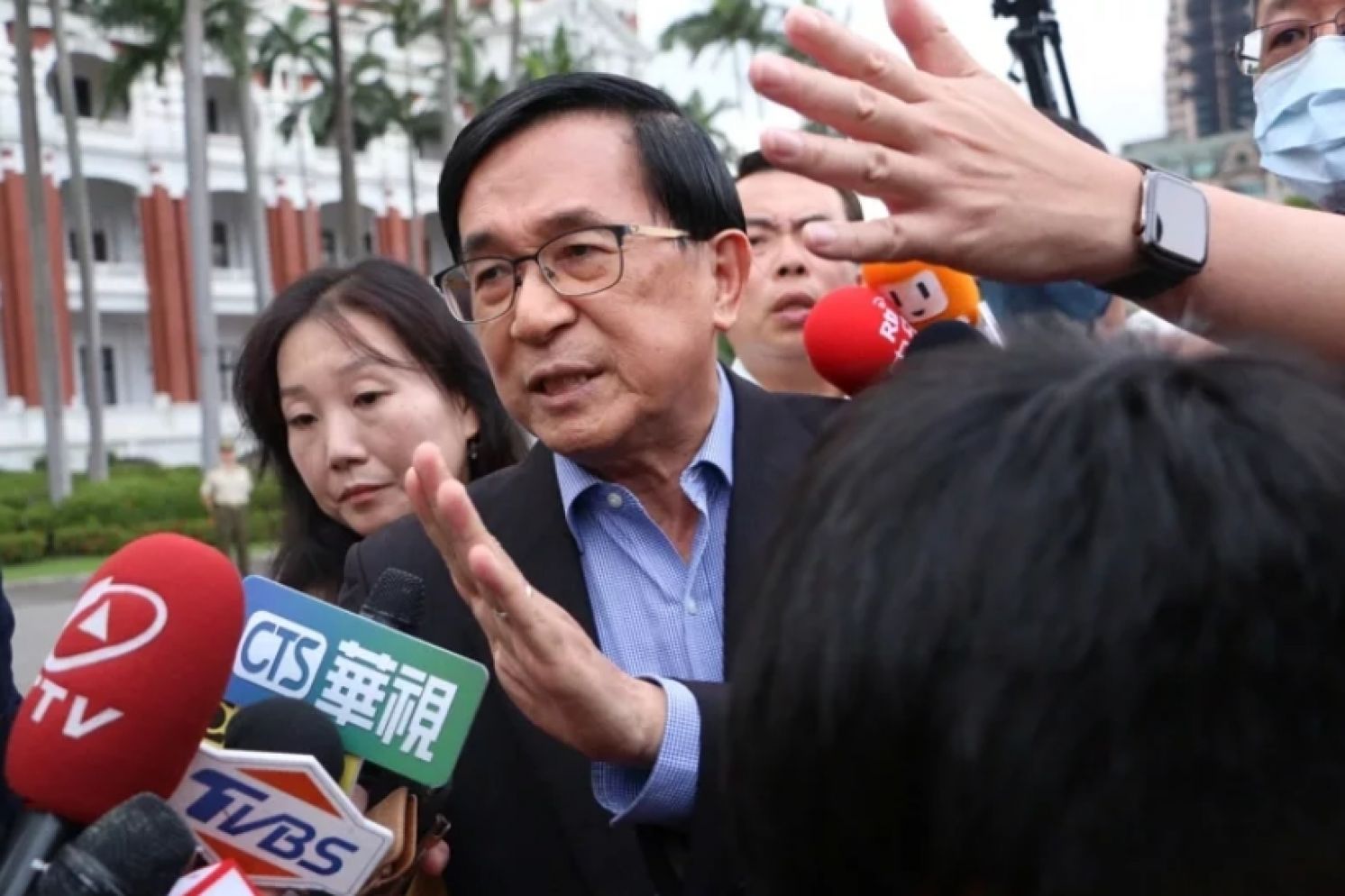
Chen Shui-bian's Petition a Heavy Blow to President Tsai
United Daily News Editorial, May 2, 2023
Former President Chen Shui-bian, who is on medical parole, recently traveled to Taipei to present a petition at the Presidential Office Building and the Legislative Yuan for his son, who is about to enter prison. This display of Chen’s agility highlights the absurdity of his special privilege of medical parole that allows him to roam around freely. Not only does this provoke resentment among thousands of prison inmates who are currently serving their sentences, but it also deals a heavy blow to President Tsai’s judicial reform efforts.
Since taking office, President Tsai Ing-wen’s most important policy priority has been judicial reform. Not only has she personally chaired the National Justice Reform Commission, but she has also emphasized repeatedly that judicial reform must be carried out from the perspective of the people and in a language that they can easily understand. The reform must also respond to the expectations of the people, President Tsai added.
However, in recent years, despite Chen’s violation of the “five no principles,” i.e., “no meetings, no stage appearances, no public speeches, no expression of political views, and no media interviews,” to which he initially agreed when he was granted medical parole, the Ministry of Justice (MOJ) and the Taichung Prison have turned a blind eye, allowing him to salami-slice the red lines, which are now almost non-existent.
In 2015, when Chen was granted medical parole, a prison riot occurred at Kaohsiung Prison at the end of the year, with one of the main reasons for the inmates’ dissatisfaction being that he was allowed medical parole despite feigning illness, while many other inmates were sicker than he was.
At the time of his medical parole, Deputy Minister of Justice Chen Ming-tang publicly stated that Chen was not acquitted or released on parole but was temporarily granted medical parole, and if he violated the conditions, he would be sent back to prison. At that time, Taichung Prison also set out the behaviors that Chen was forbidden to do, the most important of which included: not being allowed to participate in election activities, political activities, or activities unrelated to medical treatment.
At the beginning of his medical parole, Chen followed the prison’s regulations and seldom made public appearances. However, since President Tsai assumed office, Chen has been challenging the government’s red lines continuously. From recording videos to personally attending fundraising dinners for the Ketagalan Foundation, participating in his son Chen Chih-chung’s campaign activities, and even hosting a radio program, all of which were highly political. Chen Shui-bian has become a political figure who is unable to disengage himself from politics. He no longer respects the prison’s prohibitions.
The Taichung Prison had drawn the red lines for Chen, but he has repeatedly tested the waters. Both the MOJ and the Taichung Prison have only warned him to be very alert and said they would assess Chen’s behaviors. However, in the end, nothing has ever been done. Chen no longer cares about the prohibitions and restrictions, and he is now as free as a bird.
Just take a look at Chen's recent actions. He showed up at the Presidential Office Building with a petition in hand, fighting for his son's political future. And he even provided a thorough legal analysis of the ruling Democratic Progressive Party's proposed amendments to the Civil Servants Election and Recall Act. Chen is of clear mind and body, he would put many of his cellmates to shame. Who would think that he is a corrupt convict who requires medical parole?
It's a sad reality that the MOJ and its correctional institutions have shut their eyes to Chen's repeated violations. It's as if the rules bend automatically when it comes to Chen. With this level of leniency, how can we talk about meaningful judicial reforms? The fact that a convicted criminal can flaunt the law and regulations so brazenly suggests a deep-rooted problem with our judicial system that cannot be ignored.